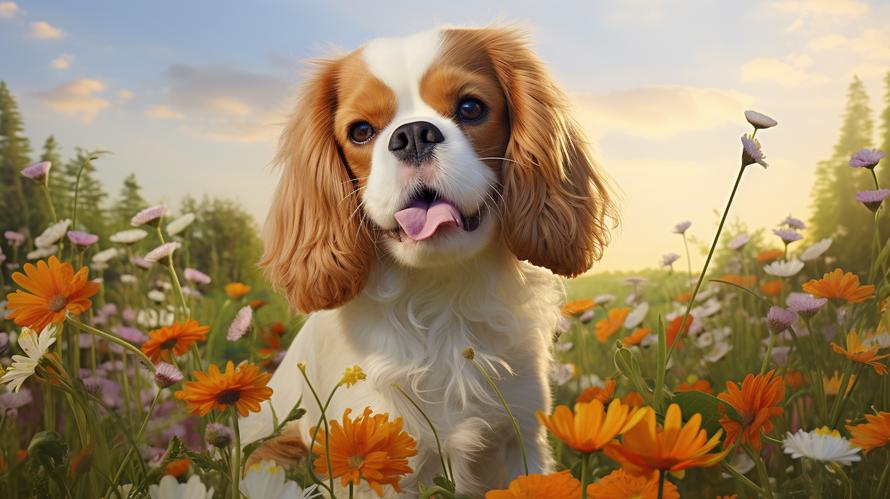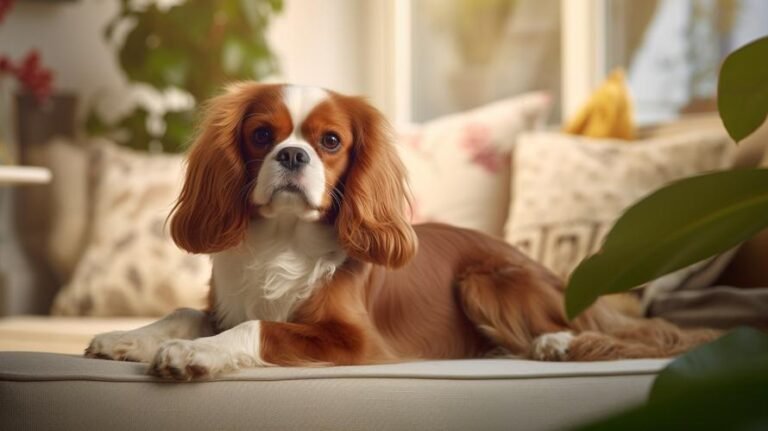Snuggled up in your armchair, sipping hot coffee, you glance down to find your beloved Cavalier King Charles Spaniel, snoring gently in their cozy bed at your feet. As you take in this peaceful sight, have you ever found yourself mulling over your pet’s dietary needs? With the rise in popularity of grain-free diets, you might wonder – should your canine companion also eat grain-free?
Well, buckle in my dog-loving friends. We embark on an educational journey diving deep into this question. By the end, you’ll be brimming with knowledge and ready to make an informed decision. Let’s unleash the facts!
Did you know that the mighty wolf – the ancestor of all modern-day dogs – is predominantly a carnivore by nature? Yes! Their diet in the wild was made up primarily of meat, with very little grain. Is that surprising? If you think so, you’re not alone! But remember, despite their ancestral lineage, dogs, including our adorable Cavalier King Charles Spaniels, have evolved considerably over the years and so have their dietary needs.
Our furry friends are omnivores now. They’ve developed a knack for digesting a wide variety of foods, including grains. This diversification came about as dogs began to cohabitate with humans. They learned to scavenge and consume what was in the human meal, including grains.
Pulling back to our question, if our dogs can digest grain, do they need to eat grain-free? The answer is a resounding, it depends! Dogs like humans are individuals, with their specific dietary needs and sensitivities. Some dogs do well on grain, while others might show signs of intolerance or allergies.
Common symptoms of grain allergies in dogs include itching, sudden weight loss, recurrent ear infections, skin irritations, or ups and downs in the digestive system, like diarrhea and vomiting. If you observe your Cavalier King Charles Spaniel showing any of these signs after a grain-inclusive meal, it’s time to look for alternatives. Grain allergies are often linked to specific types, like wheat. So, swapping it with other grain types could be an option too.
But here’s the kicker! Grain allergies in dogs are relatively rare. Much more common are protein allergies, for example, to beef or chicken. So, if your pet is showing symptoms, it’s crucial to consult your vet to figure out the actual allergen.
Okay, so what about grain-free options? You’ll often find grain-free diets being promoted as more ‘natural’ or ‘healthier’. But is this true?
Well, grain-free diets do often contain more protein and fewer carbs – sounding pretty good, right? However, they also tend to be higher in fat, which might not be ideal for a Cavalier. This breed is predisposed to obesity due to their love for lounging and lower energy levels.
Here’s a fascinating revelation – In 2018, the Food and Drug Administration (FDA) in the U.S. issued a warning about a potential link between grain-free diets and a condition called Dilated Cardiomyopathy (DCM) in dogs, which weakens the heart muscle. The FDA’s investigation found many of the dogs diagnosed with DCM were fed grain-free diets high in peas, lentils, and other legumes, or potatoes as main ingredients.
At this point, you might be feeling like you’re chasing your tail. It seems there’s no clear cut answer.
Well, guess what? You’re absolutely right! What works best for your Cavalier King Charles Spaniel ultimately comes down to their specific needs. The most crucial piece of advice here is to consult your vet or a pet nutrition expert.
Before the final bark though, let’s add one last nugget – The benefits of balanced nutrition. Like us, our pets also need a balanced diet for their overall health – a good mix of proteins, carbohydrates, fats, vitamins, and minerals. Therefore, whether you choose to feed your pet a grain-free diet or a diet containing grains, it should be one that is complete and balanced.
So, dear dog parents, instead of going in circles over grain or not, focus on providing varied, balanced nutrition to your cuddly Cavalier. And remember, a sudden swerve in the diet could upset your pet’s stomach. So, regardless of the changes, introduce them gradually. Always observe your pet’s reaction to any new food. And, oh-so-important, lean on the expert advice of your trusted vet.
Tail wagging and tongue lolling, your adorable Cavalier King Charles Spaniel awaits their meal, possibly mirroring your anticipation for your dinner. As we wrap up our enlightening journey, take a moment to appreciate the joy that their simple, unconditional love brings into our lives. And before you let the snoozing Cavalier at your feet know it’s dinner time, remember, feeding them right is how we love them right.
In the end, the bond that we share with our furry friends is built on two essential elements – love and trust. Love them, trust them, and provide them with what their bodies truly need, grain or no grain.



